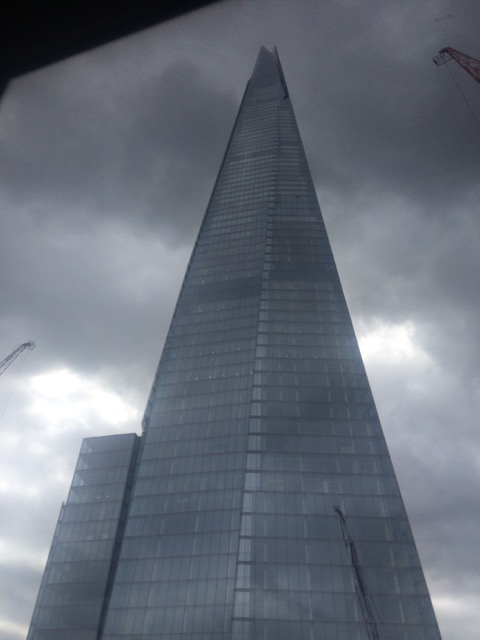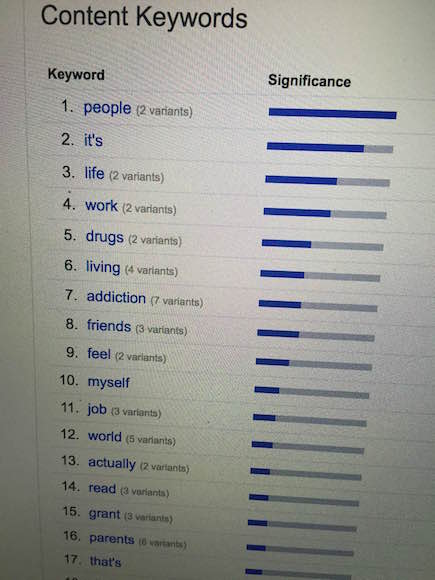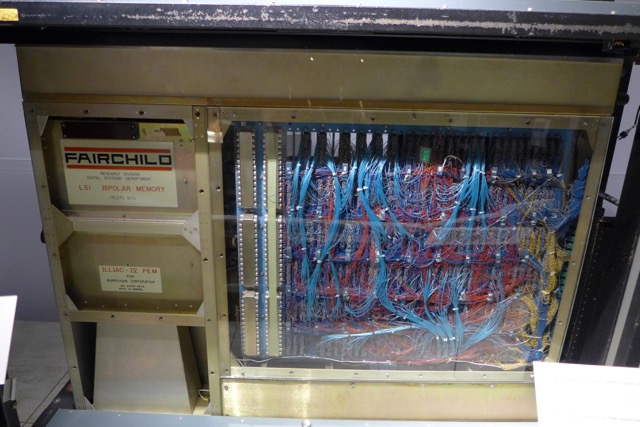This is a story about an ambitious project...

How would you go about uploading yourself to the cloud? Have you thought about death, and what happens to your personality, your mind, once the apparatus of your body ceases to be a viable vessel for its preservation? Do you want to live forever?
I unfortunately lost my original Google Mail account - grantnick@gmail.com - which I had since 2004. I've now accrued 6.6 gigabytes of email across my new accounts - nick@manicgrant.com and h@ckte.ch - which are both managed by Google and therefore fully indexed for search.
Did you know that you can download all your data from Facebook? I've been a member of Facebook for the best part of 10 years. Facebook probably knows me better than any other piece of technology. It knows where I've been, and who I was there with. It knows who I talk to, and how regularly. It knows what I've chosen to share, as status updates, which are often quite personal and private.
If you dig around in the old parts of the Internet, you can even find me in the Usenet newsgroups, writing under my own name, back in the 1990s. The old content of newsgroups has been preserved for posterity by Google.
So much of my digital identity has been lost, as I moved off the dial-up Bulletin Board Systems (BBS) onto my first email addresses with CompuServe, America On-Line and Hotmail. I then made a bad habit of using work email addresses for personal mail. That means that when I left those companies, I left behind all my mail archives. All that content is now in the virtual trash can.
Losing my Google Mail account felt catastrophic at the time. I even leveraged my contacts and managed to get David Singleton - Engineering Director at Google - to try to resurrect my account. However, I had been caught hacking, so I wasn't shown any favours. My pleas that it was "white hat" were ignored, when I was in clear violation of the Terms of Service.
I used to write on a forum for the British Kite Surfing Association (BKSA). That forum was then decommissioned, and all those old posts were lost forever. I then moved to the kiteboarder.co.uk forum, and you can still find my old content on there. I used to be one of the top contributors.
But, would you even be able to reconstruct my personality, from all that email, and those social media contributions?
What's the difference between a film adaptation and the book it's based on? In the film, it's very hard to include much of the internal monologues of characters. Using a voiceover, a narrator, sometimes works, but often we lose the very thing that makes a book so wonderful - to know how the characters think & feel.
When I'm writing something for somebody else to read, more often than not, I'm instructing somebody to act, or passing on information. It's rare that I'm opening up and giving an insight to the inner-workings of my mind. In fact, with most interactions, there is a necessary formality. I'm sure my colleagues wouldn't appreciate it if I polluted our emails with random thoughts and updates on my state of mind.
I've always had a candid, open, style of writing and speaking. I leave little to the imagination about the way I'm thinking and feeling. However, it's still a guess though, because there is actually very little opportunity in life to really open up and let the true essence of yourself flood out.

We are always held back by that voice in our head that says: "but what will people think?". We worry how we are going to be viewed, when we write, when we speak. We are constantly self-censoring and projecting things in a certain way, saying certain things, to try to maintain an image that we deem necessary for our relationships.
"I can't tell my boss that I'm on the verge of a nervous breakdown, because they will think I'm unreliable" we might say to ourselves. Or we might say "I can't let this attractive person know that I have any faults, or maybe they won't fall in love with me". We might say "I can't let my family know I'm on the brink of suicide, because that will stress them out".
The version of yourself in all those emails, videos, social media posts... it's not a very true version of yourself. You've been constrained by social protocols. "How are you?" is always followed by "I'm fine thanks". Nobody expects you to reply "I'm on the verge of killing myself. My life is misery". Nobody will thank you for giving an honest answer.
So what happens is we live a lie, and there is no true version of yourself in existence, except for the one inside your head that you never let anybody see.
If we were to reconstruct you from everything you ever wrote, everything you ever said, we'd get a corrupt version of you. The version of you that would be digitally recreated would say and do all the right things, but the thoughts inside that virtual brain wouldn't be right. All those things that you wanted to say, but didn't, simply wouldn't exist.
I have to write 1,318 words in this post, and then I've hit 300,000 words. It was easy. A novel is considered to be a text that is over 40,000 words. I've written the equivalent of 7 novels, by that measure. It's taken just 10 months.
Would you find it easy, to dump the contents of your brain out, in all its gory detail? No, I'm sure you wouldn't. Even when you're writing a diary, you're probably thinking "what if somebody read this?". You even worry about what you think of you. You try to impress yourself. You try to hide your innermost feelings, even from yourself.
The Internet is full of abandoned blogs. You can see a flurry of activity that normally spans a few months, and then peters out. You can see the sporadic posts, when a dead blog is resurrected, months or even years later. However, what's rare is the person who writes consistently, reliably, regularly.
There are piles and piles of blogospam out there, but can you really reconstruct a personality from any of them? There are people who blog about knitting, people who blog about their pets, people who blog about stargazing, people who blog about sports. Can I infer who you are, or who you were from any of this vast quantity of data? Do I really get a sense of the person, from your online persona?

Google has analysed my 300,000 words of content, and tried to figure out what I'm writing about. Google has tried to figure out what's significant in this body of work.
Somewhere in Google's servers, everything I've written has been indexed for search. In a way, I'm already alive in the cloud. People from all corners of the Earth can find me, when searching for topics that Google knows are significant. Those seekers can know how I feel, what I think. They can delve into a very private world that you ordinarily would never get to glimpse.
Do you want to live forever? Perhaps you already do. The recorded history of humanity survives death, even in the stories we tell about our dead friends and relatives, and influential members of a community. Somebody somewhere has seen your digital content, even if it's just the electronic eye of a machine. Who knows where your data is going to end up?
Those who educate, inform and entertain have a reach that goes beyond their family and friends. Those who put themselves out into the public domain have a reach beyond living memory.
My mother looks after the archives of those few people who we deem to be culturally important enough to preserve, for the Bodleian Library in Oxford - one of the oldest libraries in Europe. While the library has a digitisation project, aren't we looking at things the wrong way?
107 billion people have been alive, ever. That means you're part of about 7% of the human creative output that could ever be recorded. Writing is a relatively recent phenomenon, and the ability to output to a digital medium with no lengthy conversion process and no loss of fidelity, is something that has only come about in the lifetime of those who are alive today.
When I write, it's not as a medieval monk, in some priceless hand-scribed tome that will be squirrelled away in some private library. Instead, I write as a citizen of the planet. My writing is captured in the public repository of the Internet, and is accessible to almost every living soul.
And, what advantage, the fact that what I have created has already been digitised? Well... my content is already in a format that's friendly for machine learning.
Speech recognition and optical character recognition can understand the spoken and printed word, but it's slow. The cloud has already greedily swallowed my 300,000 words, and processed them in order to serve them up to any consumer who cares to use them.
Is it arrogant and naïve to consider whether there is any merit in this hefty lump of text? Well, we are not going to know how Artificial Intelligence and machine learning are going to advance in the coming decades. Moore's Law predicts the exponential growth of computing horsepower that can be bought for a fixed cost. However, the game changer is when computers are no longer programmed, but are instead taught how to do things.

How would I go about teaching a computer to be like me, to think like me, to speak like me? Well, it would be like teaching a child. I'd sit down and talk to the computer. We would have a conversation.
However, how long would it take to speak to a computer, before you had provided adequate input? How long would it take the computer to process the sound into a stream of text? How long would it then take the computer to process the stream of text into a form that it can understand? How long would it take the computer to then crunch the numbers and attempt to say its first words?
If I was going about this project, I'd want to provide a body of text in a consistent format. We all speak with different voices. We all have our own unique style. Language is a somewhat crude way of expressing yourself. Human communication is full of flaws, when it comes to transmitting the contents of our brains from one being to another.
I could feed a computer with digitised books. I could feed a computer with Wikipedia. I could just let a computer loose on the open Internet. However, would it be able to cope, without context? How is the poor computer going to cope with all those different voices, different languages, different agendas, different writing styles? How is a computer going to get from the complete works of William Shakespeare, to understanding the inner-workings of the Bard's mind?
I'm sure we're already within touching distance of having a computer system write a convincing love letter. We write great volumes of soppy crap to the objects of our affection. However, while the art of seduction and the emotional patterns of those who are engaged in the courtship ritual are not hard for our mechanised chums to understand, do we really know much about a person from their attempts to get their leg over?
For me, there's so much more depth to the human mind, than what we can see through forced interactions in the context of getting along with one another.
There's so much magic in the secret diary. From Anne Frank to Adrian Mole, and agony aunt columns, we voraciously devour anything that's private and intimate. Words are normally a crude means of making any kind of emotional contact with the being that hides behind those glassy eyes.
This essay is not an instruction manual on how a machine may pass the Turing Test, but when you build a computer system, you also have to think about how you're going to prime it. What is your input data? Garbage in, garbage out.
In a way, we have already succeeded. If I died tomorrow, and you wanted to know more about who I was, how I thought, what made me tick, you could do a lot worse than perusing the pages of this particular publication. If you can't get a sense of who I am from these 300,000 words, is there really any hope that Artificial Intelligence will ever be human-like. If we can't understand ourselves, what hope do machines have of understanding us?
Now, the question is: did I write this, or did I get a computer system to do it for me?

The brilliant thing about AI, is there's no wiring diagram, no schematics. Just like a brain.
Tags: #computing #writing #immortality
